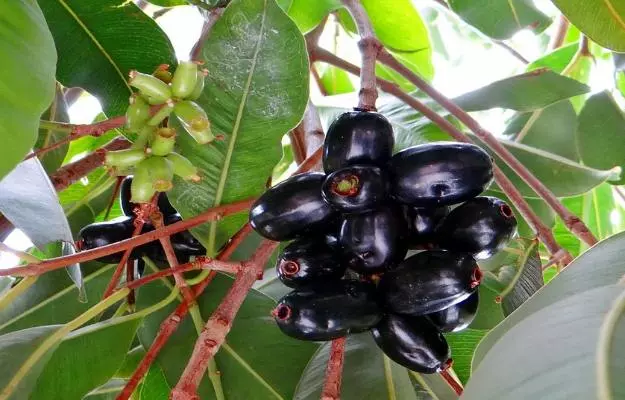Jamun, the tangy and sour fruit is a favourite of many. The fruit is ovoid, oblong, and is green in colour when unripe and changes to purple after ripening. Besides being great in taste, jamun also is a hub of several medicinal properties. It is a summer fruit with numerous health benefits. The jamun tree usually grows to a height of about 60 to 100 feet and bears fruits annually. The flowers are about 5 mm in diameter and are very fragrant.
In Ayurveda, various parts of the fruit have been mentioned to be used for treating bleeding disorders and other diseases. All of the parts of the tree and mainly the seeds are used to cure a wide range of ailments along with its dietary use. It is acknowledged as an important plant used in various traditional systems of medicine. The main use of jamun is in the treatment of diabetes mellitus, inflammation, ulcers along with diarrhoea.
Several health drinks, squashes, jams, jellies, ice-creams, smoothies etc. are prepared from ripened jamuns. Unripe jamuns are used to make vinegar or wine. The jamun berries can be cooked along with water and sugar to make preserves. The pulp of the fruit when dried and powdered becomes medicinal.
Jamun is a fruit which is native to India, adjoining regions of China and to the Queensland. The tree was introduced in 1911 to Florida and is also now commonly grown in Guyana, Suriname, and Trinidad and Tobago.
Some basic facts about Jamun
- Botanical name: Syzygium cumini
- Family: Myrtaceae
- Common Name: Jamun
- Sanskrit Name: Jambulah, Jambu falam
- Hindi Name: Jamuna
- Parts used: Skin, pulp and seed
- Native region and geographical distribution: Native to India can also be found in some other countries like Madagascar, Philippines, Indies and Thailand. It is also grown in Guyana, Trinidad and Tobago and Suriname.





























